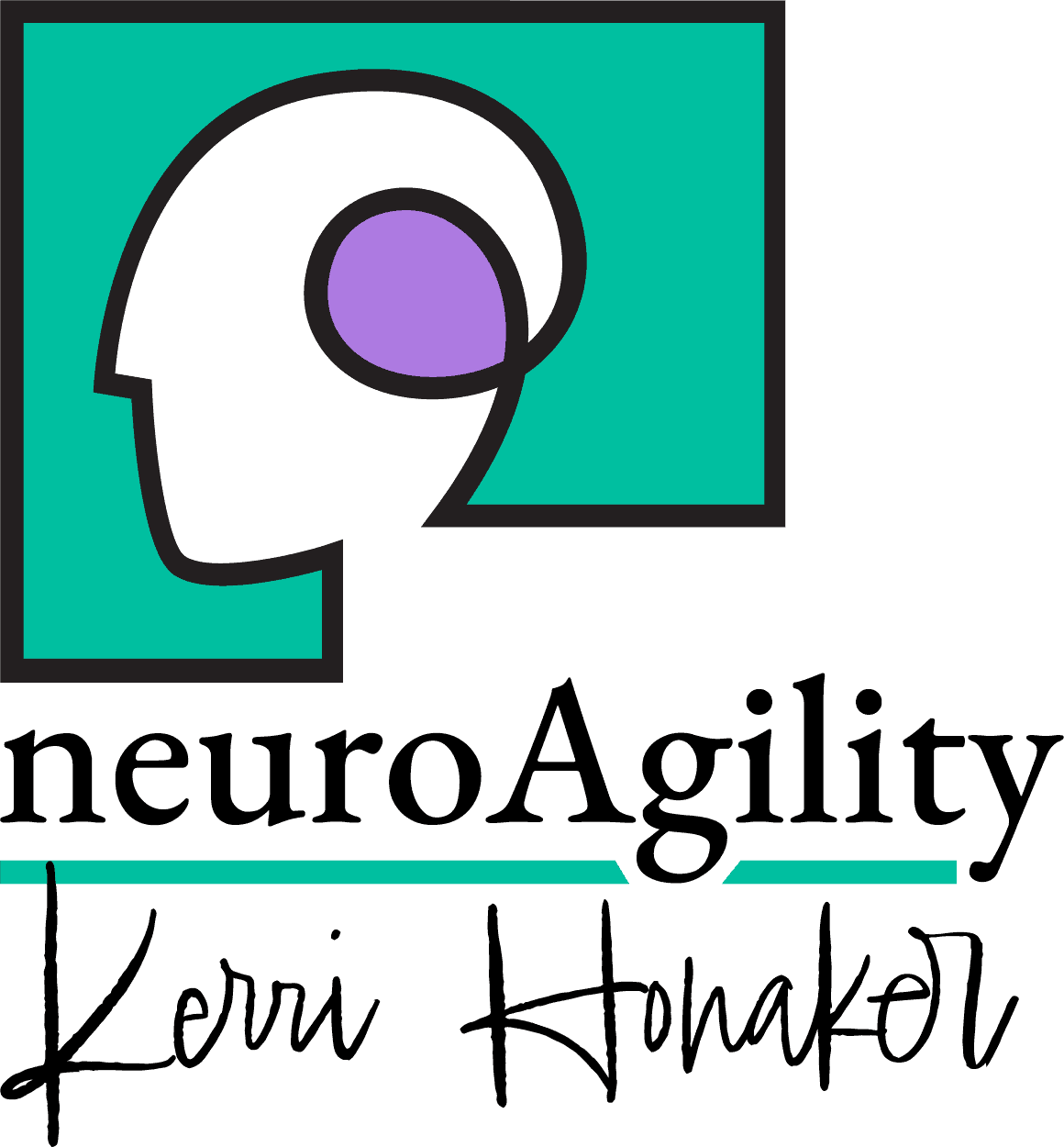Neurofeedback, also known as EEG biofeedback, is a scientifically-supported method that enables individuals to gain better control over their mental processes and emotional responses.
Neurofeedback for Enhancing Mental Resilience and Cognitive Flexibility
With applications ranging from attention improvement, anxiety reduction, lessening of PTSD symptoms, and brain injury recovery, neurofeedback offers a unique, non-invasive approach to enhancing cognitive flexibility and emotional well-being.

Neurofeedback is often compared to “physical therapy for the brain.” Just as physical therapy supports the development of muscle strength, flexibility, and coordination, and continues to do so effortlessly over time, neurofeedback trains the brain to develop resilience and optimal performance. Through neurofeedback, individuals can build a foundation for better focus, emotional regulation, and stress management, allowing them to experience a greater sense of mental clarity and stability.
How Neurofeedback Works
Neurofeedback follows a structured process that generally involves two key steps:
1. qEEG Brain Mapping
Every neurofeedback journey begins with qEEG brain mapping—a non-invasive way to measure and visualize the brain’s electrical activity. During this process, painless, FDA-approved sensors are placed on the scalp to record signals from different brain regions. This “brain map” serves as a baseline, showing areas that may benefit from neurofeedback training and helping practitioners develop a tailored protocol for each person’s needs.
2. Neurofeedback Training Sessions
After establishing the brain map, neurofeedback training sessions begin. Using computer-assisted equipment, individuals receive real-time feedback on their brainwave activity, allowing them to adjust and create more efficient patterns of brain function. Over time, this helps the brain to self-regulate, fostering improvements in focus, relaxation, and emotional control.

Benefits of Neurofeedback
Neurofeedback training is an active process. The client is working every session to figure out how to score, which in turn, does not allow the same habitual pattern to continue. The brain then learns to reinforce a different electrical pathway. This makes it a suitable option for people of all ages and needs, including children, teens, adults, and older adults.
Neurofeedback is used to address a wide variety of mental health and performance goals. Here are some areas in which neurofeedback has proven especially beneficial
- Focus and Attention: Neurofeedback can help those with ADD/ADHD by training the brain to self-regulate and reduce distractibility.
- Anxiety and Emotional Resilience: Neurofeedback can ease symptoms of anxiety, stress, and emotional instability.
- Brain Injury Recovery: For individuals recovering from a traumatic brain injury, neurofeedback supports cognitive rehabilitation and function.
- Better Sleep: Many individuals benefit from improved sleep patterns, as neurofeedback helps the brain learn how to enter a relaxed state more easily.
- Support for Autism Spectrum Disorders: Neurofeedback may also aid individuals on the autism spectrum in improving social and emotional regulation skills, fostering greater self-awareness and resilience.
- PTSD: Neurofeedback is proven beneficial with those who suffer from Trauma. Vets along with other traumatic events that happen, it can help with Fight, Flight, Freeze and other trauma based symptoms.
This process takes place naturally over time, leading to more lasting mental health improvements.
Neurofeedback for Daily Life: Managing Tasks, Relationships, and Well-Being
Beyond its benefits for specific mental health and performance goals, neurofeedback can have a transformative impact on day-to-day life, helping people better manage tasks, enjoy restful moments, and nurture meaningful relationships with others.

Neurofeedback’s ability to promote self-regulation and cognitive flexibility means that its positive effects often extend far beyond the training sessions, leading to smoother, more enjoyable routines, improved interpersonal connections, and an enhanced ability to relax.
Mastering Daily Tasks and Responsibilities
For many, neurofeedback improves executive functions—the mental skills that help us organize, plan, and complete tasks. As the brain learns to self-regulate, individuals often experience:
Increased Focus and Attention
Neurofeedback helps the brain stay engaged, making it easier to concentrate on tasks, manage multiple responsibilities, and follow through on commitments.
Better Time Management
Neurofeedback encourages a balanced, flexible brain state, which often translates to better organization and time management. Individuals may find they’re less prone to procrastination and more motivated to tackle tasks in a timely manner.
Stress Reduction
Neurofeedback reduces stress responses by promoting a calmer mental state. When day-to-day demands feel less overwhelming, individuals can face challenges with greater ease and resilience.
The result is a more organized approach to work, home responsibilities, and personal goals. Neurofeedback supports people in achieving these outcomes by training the brain to operate in its most efficient state, resulting in lasting improvements that carry over into daily routines
Rest, Relaxation, and Emotional Resilience
A key benefit of neurofeedback is its ability to train the brain to relax and reset. Neurofeedback encourages balance between brain states, making it easier for individuals to shift into a calm, restorative mode. This can be especially beneficial for those who struggle with:
Chronic Stress and Overthinking
Neurofeedback helps reduce stress responses, allowing individuals to let go of tension more easily. With practice, the brain becomes more accustomed to periods of calm, providing a much-needed mental break during the day.
Sleep Improvement
By training the brain to regulate itself, neurofeedback can also improve sleep quality. People often find they’re able to fall asleep more quickly and stay asleep longer, thanks to the brain’s ability to shift more smoothly into restful states.
Mindfulness and Presence
Neurofeedback strengthens the brain’s capacity to stay present and engaged, promoting a more mindful approach to life. With a well-regulated mind, it’s easier to savor moments of relaxation and enjoy leisure time without distraction.
This focus on relaxation and emotional resilience can make it easier for individuals to decompress and feel rejuvenated. These effects are not only crucial for mental health but also provide a solid foundation for building healthier, more rewarding relationships.
Nurturing Social and Family Relationships
Neurofeedback’s benefits extend beyond personal well-being, as the enhanced emotional regulation and cognitive flexibility it promotes can have a profound impact on social interactions and family life. As neurofeedback trains the brain to achieve a calm, balanced state, individuals often find they’re more equipped to connect with others and handle social situations effectively. Some of the ways neurofeedback can support relationships include:
Improved Communication
Neurofeedback helps people manage emotional reactions, making it easier to communicate calmly and effectively, even in challenging situations. This can be particularly beneficial for family dynamics, where strong emotions can sometimes lead to misunderstandings.
Enhanced Empathy and Patience
A well-regulated brain tends to foster greater emotional resilience and empathy. Neurofeedback helps individuals become more attuned to others’ perspectives, enhancing understanding and reducing frustration in social and family interactions.
Strengthened Family Bonds
For children, teens, and adults alike, neurofeedback can support a positive shift in family dynamics. Parents who are more relaxed and emotionally steady can model this behavior for their children, creating a home environment that’s more supportive, structured, and harmonious.
These relational improvements have a ripple effect, contributing to an overall environment of respect and understanding within families and friendships. By fostering a balanced mental state, neurofeedback can transform the way individuals interact with one another, encouraging connections that are rooted in patience, empathy, and clarity.
Neurofeedback Program Options
Neurofeedback is often offered in several program formats, each tailored to different client needs. These can include:
Clinical Programs
Neurofeedback can be effective in clinical settings to help individuals manage specific conditions, such as:
Performance Programs
Beyond therapeutic applications, neurofeedback is popular among high achievers, including athletes, executives, and creatives, to enhance their mental resilience and performance. Programs often target:
- Baseline Assessment: An initial assessment to establish the client’s cognitive baseline and guide training.
- Competitive Athletes: Neurofeedback helps athletes optimize mental readiness, focus, and performance under pressure.
- Executives and Leaders: Training focuses on building stress resilience and cognitive agility for high-demand environments.
In these programs, neurofeedback may be combined with psychotherapy, educational support, and medical guidance, providing an integrated approach to mental health.

Remote Neurofeedback Programs
Many clinics and providers offer remote neurofeedback options for clients who prefer to train from home. With the support of specialized equipment, guided instructions, and remote practitioner support, clients can enjoy the benefits of neurofeedback with added convenience.
Why Choose neuroAgility for Your Neurofeedback Journey?
neuroAgility stands out for its commitment to personalized, compassionate care, combining extensive clinical experience with cutting-edge technology to help clients achieve their mental wellness goals. Founded by specialists in medicine, psychology, and brain health, neuroAgility has over two decades of expertise in neurofeedback and performance enhancement. Here’s why individuals and families choose neuroAgility:

Highly Qualified Team
With decades of experience and thousands of success stories, neuroAgility is a trusted leader in neurofeedback and brain health.

Tailored Treatment Plans
We utilize top of the line equipment, ensuring safety and effectiveness for all clients.

State-of-the-Art Equipment
Every brain is different, which is why our neurofeedback protocols are customized to meet your specific needs and goals.

A Supportive and Comfortable Environment
neuroAgility’s offices offer a welcoming, non-stigmatizing space where clients feel comfortable discussing their goals and progress. The team is dedicated to fostering a sense of self-mastery, self-confidence, and empowerment in each individual.

Proven Success and Community Support
neuroAgility proudly serves the Boulder and Denver communities, working with clients of all ages, from children and teens to adults, seniors, and veterans. With a track record of success and ongoing community involvement, neuroAgility is committed to helping individuals and families achieve lasting, meaningful change.
